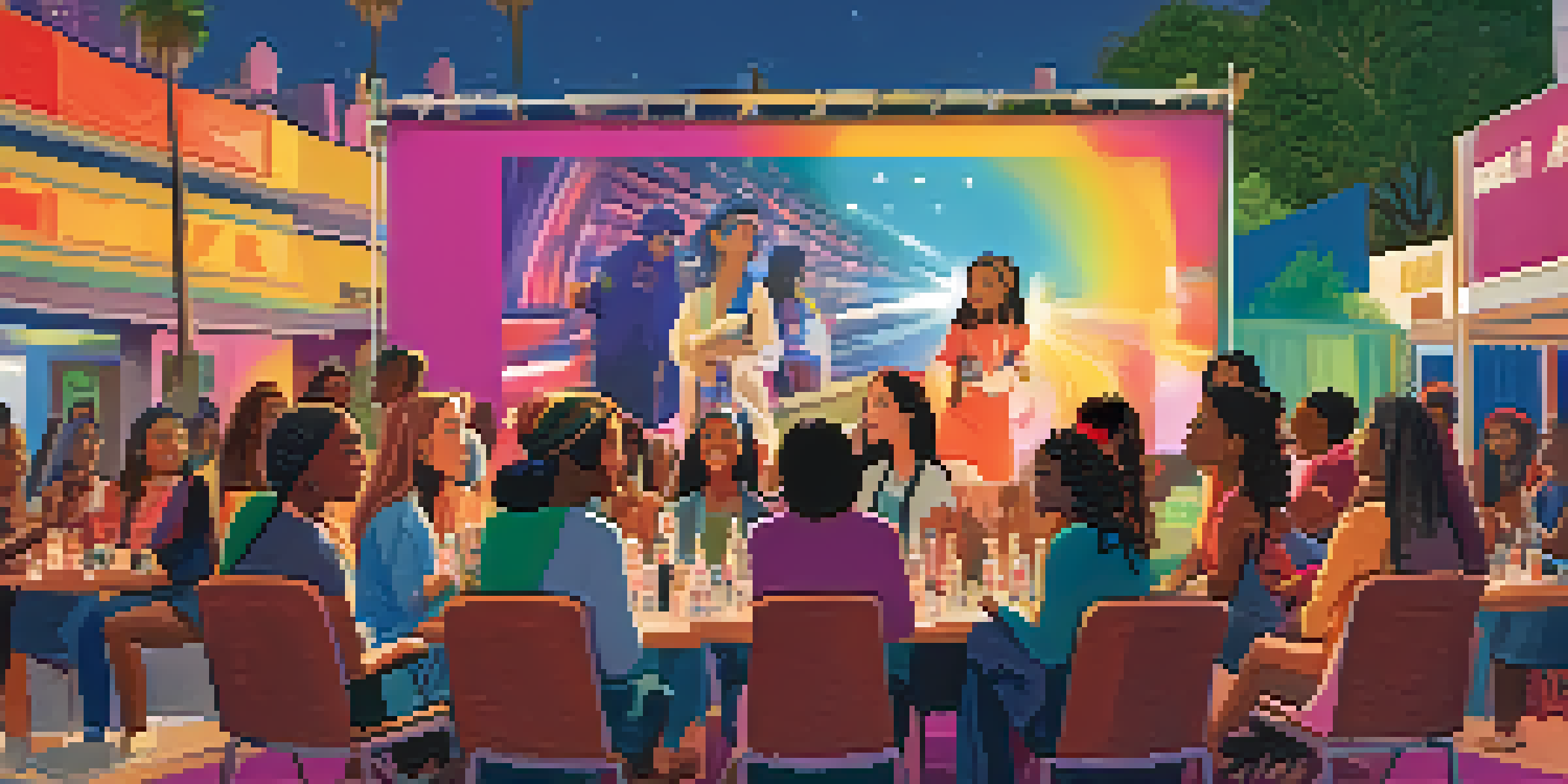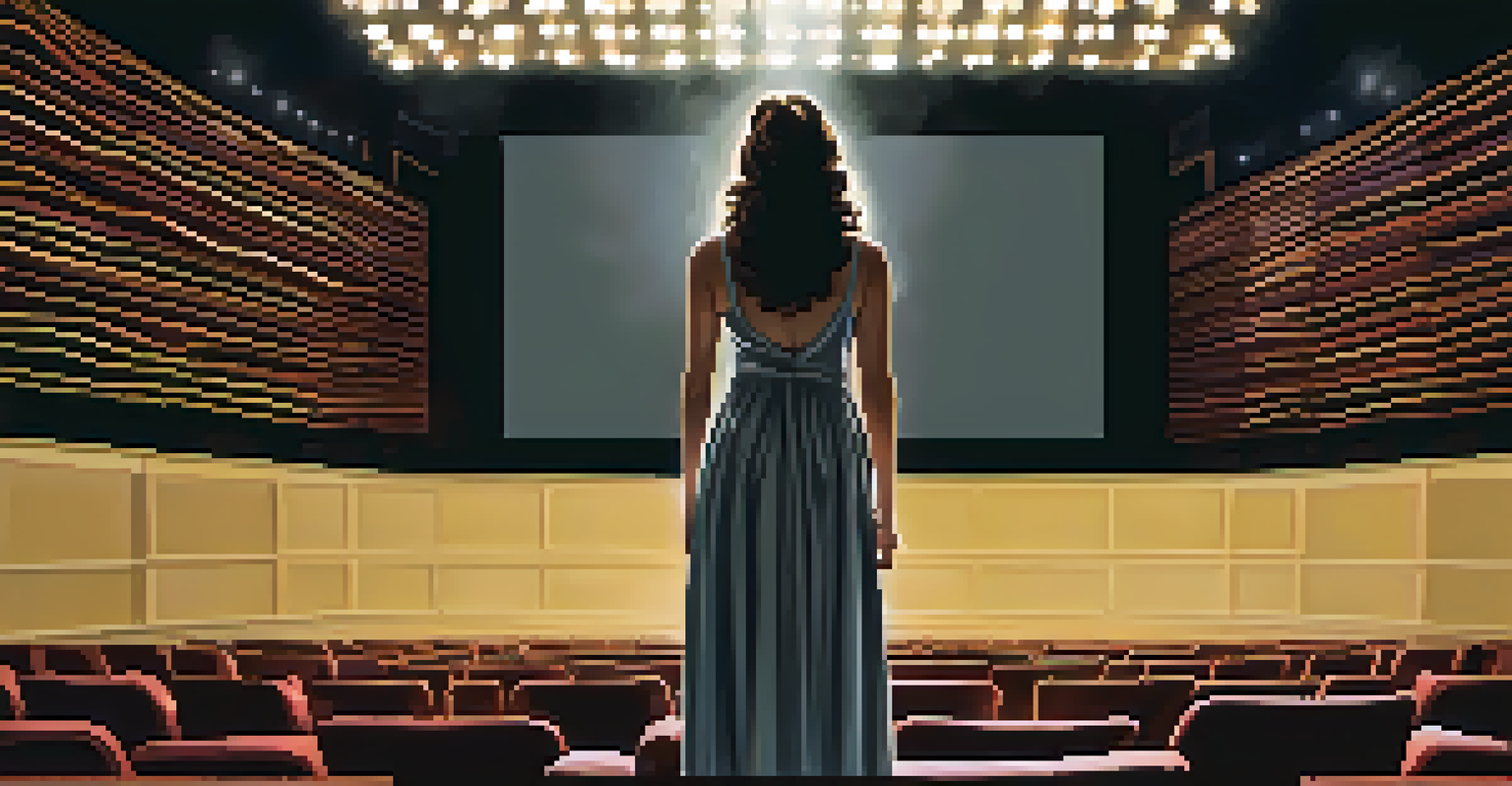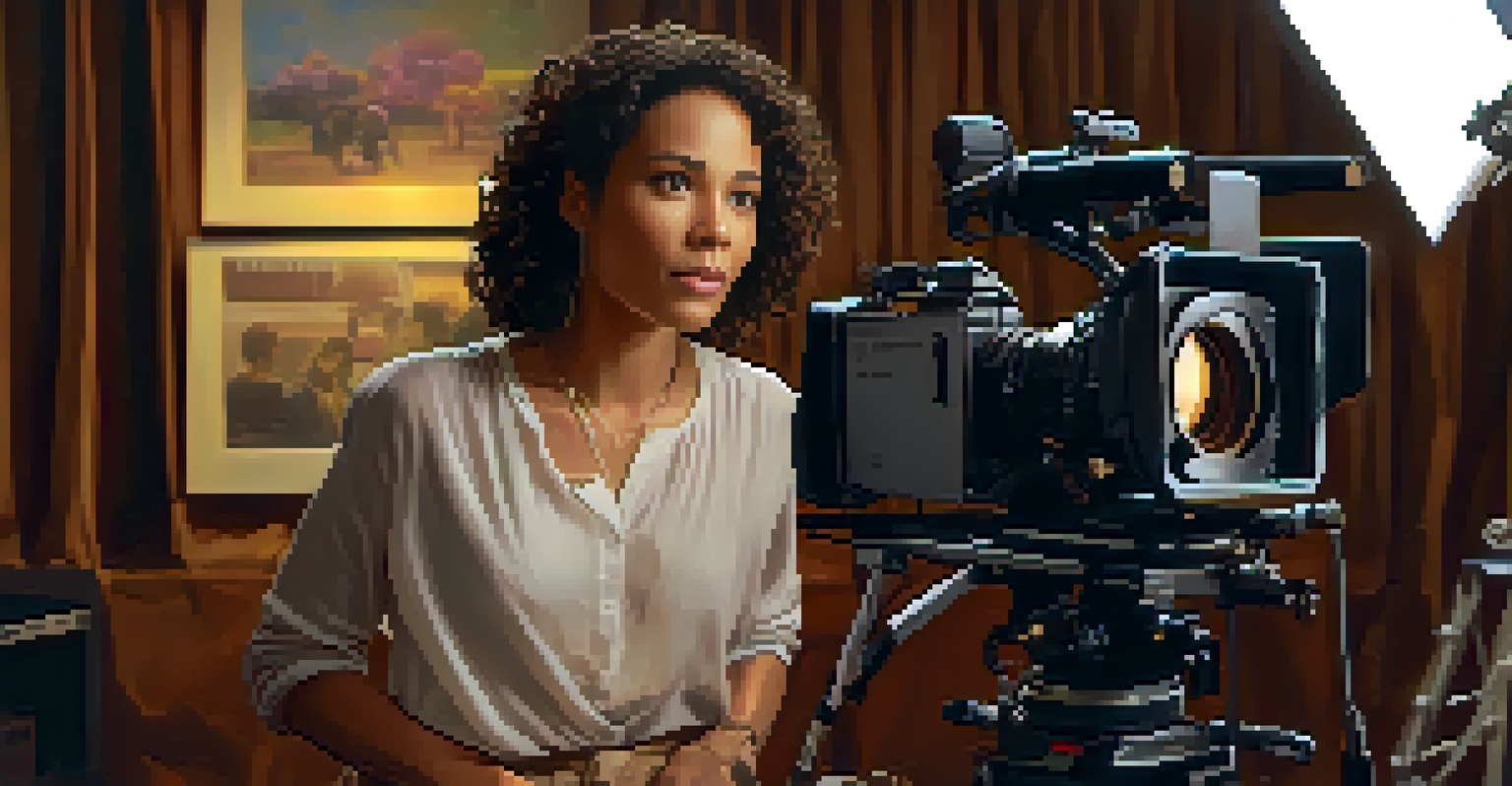Cinema's Role in Gender Equality Advocacy

The Power of Storytelling in Cinema
Storytelling has always been a fundamental part of human culture, and cinema is a powerful medium for sharing stories. Through films, we experience different lives and perspectives, often sparking empathy and understanding. When these stories highlight gender equality and women's rights, they resonate with audiences and can inspire change.
The stories we tell ourselves and others shape our reality and our identities.
For instance, films like 'Thelma & Louise' and 'Hidden Figures' showcase women's struggles and triumphs, encouraging viewers to think critically about gender issues. These narratives not only entertain but also educate, shedding light on real-world challenges that women face. The emotional connection viewers form with characters makes these messages more impactful.
Furthermore, storytelling in cinema allows for the representation of diverse voices, particularly those of marginalized women. By amplifying these stories, filmmakers contribute to a broader dialogue about gender equality and social justice, making cinema a vital tool for advocacy.
Historical Context: Cinema and Women’s Rights
Cinema has a rich history intertwined with the women's rights movement, reflecting societal changes and cultural shifts. From the suffragette films of the early 20th century to today's feminist films, cinema has documented and influenced the fight for gender equality. These films often serve as a mirror, reflecting the struggles and progress made over decades.

During the 1960s and 70s, as the women's liberation movement gained momentum, films began to challenge traditional gender roles. Movies like '9 to 5' tackled workplace inequality, portraying women's empowerment in a male-dominated society. This shift not only entertained but also encouraged conversations around female representation and rights.
Storytelling Sparks Social Change
Cinema's powerful storytelling can inspire empathy and drive conversations about gender equality and women's rights.
Today, filmmakers continue to draw inspiration from past struggles, using their platforms to highlight contemporary issues. By connecting historical narratives to modern-day challenges, cinema plays a crucial role in advocating for sustained gender equality.
Influential Female Filmmakers Leading the Charge
Female filmmakers have been at the forefront of promoting gender equality in cinema, bringing unique perspectives to storytelling. Directors like Ava DuVernay, Greta Gerwig, and Patty Jenkins have created films that challenge stereotypes and elevate women's voices. Their work not only reflects the female experience but also inspires future generations of filmmakers.
Cinema is a mirror by which we often see ourselves.
For example, Ava DuVernay's 'Selma' focuses on the civil rights movement, emphasizing the contributions of women alongside men. Greta Gerwig's 'Little Women' offers a fresh take on Louisa May Alcott's classic, showcasing the independence and aspirations of women. These films have garnered critical acclaim and have sparked discussions around representation in the industry.
The rise of female filmmakers signifies a shift in Hollywood, where women's stories are increasingly recognized and valued. This movement encourages more women to pursue careers in filmmaking, ultimately leading to a more balanced and equitable industry.
Representation Matters: On-Screen Diversity
Representation in cinema is crucial for advocating gender equality, as it shapes societal perceptions of gender roles. When women are portrayed in a variety of roles—leaders, heroes, and complex characters—it challenges stereotypes and inspires audiences. Diverse representation helps to normalize the idea that women can excel in any field, breaking down barriers.
Films that feature strong female leads, such as 'Wonder Woman' and 'Black Panther,' have not only performed well at the box office but also sparked conversations about representation in superhero genres. These characters serve as role models, empowering young girls to aspire to greatness, regardless of societal expectations.
Representation Drives Industry Change
Diverse representation in films challenges stereotypes and inspires audiences, paving the way for a more inclusive film industry.
Moreover, representation goes beyond just gender; it includes racial, sexual, and cultural diversity. By showcasing stories from various backgrounds, cinema fosters understanding and solidarity, reinforcing the importance of inclusion in the fight for gender equality.
Cinema as a Catalyst for Social Change
Films have the unique ability to raise awareness and mobilize audiences around social issues, including gender equality. By addressing topics like domestic violence, pay inequality, and reproductive rights, cinema can spark conversations that lead to real-world action. Documentaries and fictional narratives alike have the potential to educate and inspire change.
For instance, the documentary 'Miss Representation' explores how media portrayal affects women's self-esteem and aspirations. By highlighting the impact of gender stereotypes, it encourages viewers to advocate for change in both media and society. This kind of awareness is crucial for fostering a culture that values equality.
Additionally, films often inspire grassroots movements, encouraging audiences to engage with advocacy organizations. When viewers connect emotionally with a film's message, they are more likely to take action, whether through activism, donations, or spreading awareness.
The Role of Film Festivals in Advocacy
Film festivals play a significant role in promoting gender equality by showcasing diverse films that focus on women's issues. Events like the Women's Film Festival and the Sundance Film Festival often spotlight female filmmakers and narratives that challenge traditional gender norms. These platforms provide a space for underrepresented voices to be heard.
By highlighting films that advocate for gender equality, festivals not only celebrate artistic achievements but also foster important discussions. They create opportunities for filmmakers to share their stories and connect with audiences who are passionate about social change. This exchange of ideas can lead to collaborations and increased visibility for important issues.
Film Festivals Promote Advocacy
Film festivals highlight female-centric narratives, fostering discussions that advocate for gender equality and amplify underrepresented voices.
Moreover, film festivals can influence industry trends by encouraging studios to invest in female-centric projects. As more audiences demand diverse narratives, the potential for meaningful change in the film industry increases, ultimately contributing to a more equitable landscape.
Future Directions: Cinema and Gender Equality
Looking ahead, the future of cinema in advocating for gender equality appears promising yet challenging. As more filmmakers, both male and female, commit to telling diverse stories, the industry can continue to evolve. However, it requires ongoing effort to ensure that gender equality remains a priority in filmmaking.
The rise of streaming platforms has also changed the landscape of cinema, providing new opportunities for diverse storytelling. With access to a global audience, filmmakers can address gender issues from various cultural perspectives, enriching the dialogue around equality. This accessibility can lead to a broader understanding of women's experiences worldwide.

Ultimately, the continued push for gender equality in cinema will rely on the active participation of audiences, filmmakers, and industry leaders. By supporting films that advocate for women's rights and challenging the status quo, we can all contribute to a more equitable future in the cinematic world.